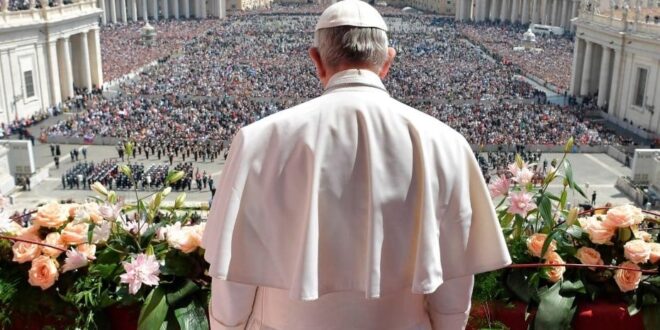A Eulogy for the Passing of Pope Francis
By
Hossam Badrawi
I am a Muslim, a researcher in the relationship between religions and science, and a firm believer in the importance of using reason in a time when the voices of fanaticism and isolationism are growing louder.
Since the dawn of history, the major religions have provided frameworks for meaning, justice, and mercy in human life. They were all born from the depths of human consciousness and the yearning for something higher — a value system that governs the relationship between man and his Creator, and between man and his fellow human beings.
The paradox, however, is that these messages, which came to guide, have sometimes — through misunderstanding or misuse of power — turned into dividing lines, even opposing fronts.
This is where the importance of human dialogue between religions becomes evident — not merely as an elite meeting between clerics, but as a comprehensive civilizational path that reconnects religions to their original human essence.
When Islam, Christianity, Judaism, Hinduism, Buddhism, and others engage in dialogue, they do not abandon their beliefs; rather, they discover their shared dimensions. All call for mercy. All revere justice. All urge love and respect for the human being as a dignified creation.
In today’s world, the battle is no longer between religions, but between tolerance and fanaticism — between recognizing the other and denying them — between love and fear.
With the passing of Pope Francis, we have lost a powerful voice of wisdom — a man who was not just the head of the Catholic Church, but a living conscience for the world, a mind open to humanity in its widest sense.
Pope Francis was among the rare few who had the courage to apologize for the Church’s past mistakes, and the humility of great leaders to reread history in a spirit of love rather than arrogance, of reform rather than condemnation.
His faith was not fanaticism, but a bridge. His doctrine was not a dam, but a river flowing toward the other, searching for common ground in an increasingly divided world.
This spirit reached its highest expression in the historic document he signed with the Grand Imam of Al-Azhar, the symbol of moderate Islam — the Document on Human Fraternity, a clear call for peace, mutual recognition, and the building of a world wide enough for all who believe in dignity, justice, and mercy.
I consider the “Document on Human Fraternity” to be a moral compass in a confused age. A religion that does not engage in dialogue becomes a closed-off ideology. But a religion that does, regains its luminous face — reconciled with humanity and with time.
Perhaps Pope Francis was one of the most spiritually aware leaders that interfaith dialogue is, in truth, a dialogue within the human self — a dialogue between our conflicting sides: fear of the other and the desire to meet them; superiority and humility; hatred and compassion.
Religious dialogue is not a luxury, but a moral and intellectual necessity for survival — and for rebuilding a world spacious enough for all, without oppression or arrogance.
Pope Francis has departed this world…
And his passing is not only a loss to the Church, but to all of humanity.
We have lost him as a voice of conscience in the face of injustice, as a spiritual leader who believed in science, dialogue, and equality.
We have lost him as a human being, before being a religious figure.
But the hope remains that the seeds of understanding and love he planted will continue to live on…
In the documents he signed, in the hearts he inspired, and in the consciences he awakened.
Farewell, great man.
You were more than a leader…
You were the tender conscience of the world in a harsh and confused time.
 Dr. Hossam Badrawi Official Website
Dr. Hossam Badrawi Official Website


